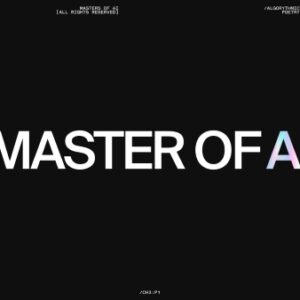Better Speak – Joseph Tsar
$99.00 Original price was: $99.00.$15.00Current price is: $15.00.
- Delivery: You Will Receive A Receipt With Download Link Through Email.
- If you need more proof ofcourse, feel free to chat with me!

Description
Table of Contents
ToggleIn an age where digital communication often eclipses nuanced discourse, the program Better Speak emerges as a vital intervention, designed to revitalize the ancient, powerful art of articulate speech. It stands as a testament to the belief that mastery over language is not merely a social grace but a fundamental life skill, indispensable for connection, influence, and personal fulfillment in every facet of modern existence.
Better Speak

The program Better Speak is founded on a profound observation: modern society is grappling with a pervasive crisis of inarticulacy. This isn’t just about public speaking; it permeates everyday interactions, conversations, and even our internal thought processes. The very fabric of coherent, impactful communication is fraying, leading to consequences that reach far beyond casual miscommunication. Better Speak directly confronts this challenge, positioning itself as a crucial tool for individuals seeking to reclaim their voice and articulate their thoughts with precision and passion. It’s a stark reminder that while technology has advanced our means of connection, it has often simultaneously diminished the quality of our expression.
The Inarticulacy Epidemic and its Societal Toll
Modern discourse, both casual and formal, often presents a landscape littered with linguistic debris: shoddy, cluttered sentences that obscure meaning, the pervasive distraction of “ums” and “uhs,” severely limited vocabularies, and an over-reliance on vague and even vulgar expressions. This isn’t just a matter of poor grammar; it’s a symptom of a deeper societal shift where the value once placed on clear and eloquent speech has been tragically eroded. The familiar gym conversation, riddled with monosyllabic grunts and imprecise descriptors, serves as a stark metaphor for this widespread linguistic apathy, underscoring how often we struggle to articulate even simple experiences or feelings with depth and clarity.
Historically, the mastery of rhetoric was considered an indispensable pillar of education and citizenship. Ancient Greeks, for instance, would send young adults away for two full years specifically to hone their rhetorical prowess, understanding that the ability to persuade, to inspire, and to lead hinged upon articulate command of language. This foundational emphasis, however, has largely vanished from Western curricula. The data points specifically to the dissolution of rhetoric teaching in public schools after the Education Reform Act of 1982, marking a pivotal moment where the systematic cultivation of verbal dexterity began its precipitous decline. This legislative decision, perhaps unintentional in its full ramifications, effectively removed the formal structures designed to nurture eloquence, leaving subsequent generations to largely navigate the complexities of language on their own, often without adequate guidance or appreciation for its profound power.
The consequences of this linguistic decline are far-reaching and deeply personal. As individuals struggle to articulate complex thoughts and nuanced emotions, there is an inevitable fading of expressiveness, a diminishment of emotional intelligence, and a narrowing of internal thought. When one lacks the words to define their feelings, those emotions can become nebulous and overwhelming, leading to frustration and isolation. This contributes to a sense of life as a monotonous cycle – “eat, sleep, work, repeat” – where the rich tapestry of human experience remains largely undiscussed and therefore, unexamined. The inability to articulate one’s inner world can lead to a profound disengagement from both self and society, rendering interactions superficial and leaving the individual feeling unheard and misunderstood. Better Speak recognizes this profound impact and aims to reverse this trend by empowering individuals to give voice to their inner landscapes.
The Unveiled Superpower: Articulate Speech in Every Interaction
Good communication, as championed by Better Speak, is not merely a skill but explicitly designated as a “superpower” – the world’s most timeless one. This assertion elevates the act of speaking articulately from a polite social amenity to a fundamental force capable of shaping realities. Articulate speakers possess an inherent ability to lead, inspire, and transform, not just from a podium but in the quietest of interpersonal exchanges. They are the ones who can clarify confusion with a well-chosen phrase, elevate discussions from mundane chatter to meaningful dialogue, and bridge understanding where others find only division. It’s about the subtle art of selecting the perfect word at the perfect moment, the strategic pause that amplifies impact, and the melodic flow of sentences that captivates and persuades. This is the essence of true influence, built not on volume but on the clarity and resonance of one’s message.
Despite the perceived decline in everyday articulacy, there remains a deep, almost subconscious reverence for language embedded within our culture. This paradox is evident in the widespread popularity of online motivational quotes, the viral spread of profound speeches, and the avid consumption of insightful interviews. Even among Gen Z, often characterized by brevity and visual communication, there is a distinct tendency to follow figureheads or influencers specifically for their eloquence, their clarity of thought, and their ability to articulate complex ideas with precision. This suggests an underlying yearning for verbal mastery, a tacit acknowledgment that powerful language moves hearts and minds, transcates fleeting moments into lasting impact. Better Speak taps into this inherent cultural appreciation, serving as a beacon for those who feel this latent desire to connect more deeply through words.
While Better Speak focuses intensely on verbal articulation, it wisely acknowledges that good communication extends beyond the mere arrangement of words. It encompasses a symphony of qualities, including the often-underestimated power of tonality, the expressive choreography of body language, and perhaps most subtly, the strategic use of silence. These non-verbal cues profoundly impact how a message is received and interpreted.
However, the program critically observes that amidst discussions of presentation skills, the foundational “art of arranging words in articulate and clever ways” is almost universally overlooked. This precise oversight is what Better Speak aims to spotlight. It’s not about ignoring body language; it’s about mastering the linguistic architecture that forms the core message, ensuring that the words themselves are robust enough to carry the weight of intent and clear enough to bypass misinterpretation, allowing ancillary aspects like tonality and gesture to amplify rather than compensate. This fundamental focus on linguistic precision sets Better Speak apart, addressing a void in modern communication training.
Cultivating Verbal Athletes: BetterSpeak’s Transformative Philosophy
Unlike numerous communication programs that heavily lean into stage presence, keynote delivery, and the mechanics of public speaking, BetterSpeak intentionally pivots its focus towards the hundreds of everyday situations that demand just the right words. Its curriculum is meticulously designed to equip individuals for the nuanced challenges of describing complex feelings, sharing deeply held beliefs in a compelling manner, or offering genuinely consoling words to a grieving friend.
This emphasis transforms the program from a niche skill-builder into a universal life enhancer, recognizing that the moments of true impact and connection often occur not under bright stage lights, but in intimate personal exchanges, informal meetings, and spontaneous conversations. By perfecting communication in these commonplace yet critical scenarios, Better Speak empowers its participants to weave articulacy into the very fabric of their daily existence, making every interaction an opportunity for connection and clarity.
Joseph Tsar‘s mission with Better Speak is to train what he terms “verbal athletes,” a powerful metaphor that reframes good speaking not as an innate talent possessed by a select few, but as a dynamic skill rooted in patterns, discipline, and consistent practice – precisely like a sport. This philosophy implies that anyone, regardless of their current proficiency, can develop exceptional verbal dexterity through dedicated training. The approach encourages participants to be playful with words, exploring their nuances and sonic qualities; precise, choosing words for optimal impact and clarity; and creative, moving beyond clichés to craft original and memorable expressions. The analogy to athleticism is particularly insightful, suggesting that just as a physical athlete trains their body through drills and repetition, a verbal athlete hones their linguistic muscles through structured exercises and mindful application. This cultivates not just competence, but a genuine love for the craft of language.
A cornerstone of the Better Speak philosophy is its assertion that simply “removing filler words isn’t enough.” While eliminating “ums” and “uhs” might superficially cleanse speech, it does not address the underlying systemic issues of limited vocabulary, convoluted sentence structures, or underdeveloped thought processes. The program aspires to a far more profound transformation: to foster a fundamental understanding and fluency with language that inherently elevates every interaction.
This holistic approach means building a robust lexicon, developing a sophisticated grasp of sentence architecture, and cultivating the mental agility required for spontaneous, coherent articulation. By addressing these foundational elements, Better Speak aims to make filler words obsolete, not through rote suppression, but by replacing them with a natural flow of precise and purposeful language. It’s about building a solid mansion of words, rather than just sweeping the dust from its porch.
Furthermore, Better Speak employs an innovative method of “Inspiration through Exposure.” The program immerses its students in the richness of exemplary language, exposing them to the most powerful phrases, the most profound speeches, and the most persuasive patterns ever crafted. This isn’t about memorization, but about deep absorption. The program posits that by consistently engaging with such high-caliber rhetoric, individuals will begin to unconsciously mirror those patterns in their own speech, much like a musician develops their ear by listening to masters.
This method allows participants to discover untapped language potential within themselves, expanding their expressive toolkit organically. The ultimate goal is profoundly personal: “When you speak better, you feel better.” This simple yet powerful statement encapsulates Joseph Tsar‘s core mission, highlighting the intrinsic link between articulate self-expression and enhanced self-worth, recognizing that the ability to voice one’s thoughts and feelings clearly is deeply empowering, leading to greater confidence and a more fulfilling existence.
Joseph Tsar
The genesis of Better Speak is intrinsically tied to the compelling personal narrative of its founder, Joseph Tsar. His journey from severe linguistic disability to articulate mastery provides the program with a unique and powerful credibility, imbuing its teachings with a deep sense of empathy and practical wisdom. Joseph’s story is not merely an anecdote; it is the living embodiment of the program’s core promise: that articulate speech is a skill that can be painstakingly reconstructed and honed, even in the face of immense adversity. His lived experience underpins every principle and practice taught in Better Speak, transforming theoretical concepts into tangible, attainable goals for every participant.
From Adversity to Authority: Joseph’s Transformative Journey
At the tender age of 15, Joseph Tsar endured a life-altering stroke that tragically deprived him of his ability to speak. This wasn’t merely a temporary setback; it plunged him into a profound struggle to form coherent sentences and articulate even the simplest thoughts. The loss of speech at such a formative age led to acute social anxiety, a crushing burden for any teenager navigating the complexities of identity and peer interaction. His voice, a fundamental aspect of self, had been taken from him, leaving him feeling isolated and disempowered. This harrowing experience forms the bedrock of his understanding of the silent struggle many face when their ability to communicate is compromised, whether by sudden trauma or gradual societal neglect.
Joseph’s recovery was not a passive process but an active, almost feverish quest for verbal athleticism. He immersed himself completely in the study of language, driven by an unyielding determination to reclaim his voice. His curriculum was self-designed and immensely rich, drawing inspiration from the titans of oratory: he meticulously listened to and analyzed the speeches of luminaries like Martin Luther King Jr., John F. Kennedy, and Ronald Reagan, dissecting their rhetorical structures and persuasive techniques.
Beyond political discourse, he delved into the profound beauty and precision of poetry, studying the works of T. S. Elliot, Oscar Wilde, and Robert Frost, internalizing their mastery of rhythm, imagery, and condensed meaning. This intellectual odyssey was further enriched by his engagement with academics from prestigious universities such as the University of Texas, Harvard, and St. John’s, seeking out their insights and challenging his own burgeoning understanding of language and rhetoric. This rigorous, multi-faceted approach allowed him to reconstruct his linguistic abilities not just to their pre-stroke level, but to an entirely new echelon of articulate power.
What truly distinguishes Joseph Tsar’s authority is not a claim of inherent superiority, but a profound connection born from shared vulnerability. As he himself states, his credibility comes “not from the fact that I think I’m better than you… But because I was worse than all of you.” This frank admission disarms potential critics and establishes an immediate, powerful bond of empathy with his audience. His journey from the nadir of inarticulacy to the pinnacle of verbal mastery provides irrefutable proof of his methodology’s efficacy.
It grounds Better Speak in a lived experience of struggle and triumph, rather than abstract theory. This unique perspective resonates deeply, inspiring hope and confidence in those who feel unheard or limited by their own communication challenges. His proven impact is further evidenced by a YouTube audience of over 200,000, all learning from his compelling observations and practical guidance, a testament to the broad appeal and genuine value of his insights.
The 10 Rules of Articulacy: Foundation of BetterSpeak’s Methodology
The comprehensive framework of Better Speak is distilled into the “10 Rules of Articulacy,” a systematic guide designed to cultivate profound linguistic mastery. These rules transcend superficial fixes, offering a holistic approach to transforming an individual’s relationship with language, from the initial spark of an idea to its polished, impactful delivery. They form the very backbone of the program, providing concrete, actionable steps that empower participants to develop the precision, depth, and creative spark characteristic of truly articulate speakers. Each rule, while distinct, interlocks with the others, building a cohesive methodology that guides students towards an elevated level of communication excellence.
Here is a summary of the 10 Rules of Articulacy:
| Rule Number | Rule Name | Key Principle |
|---|---|---|
| 1 | Conscious Word Selection | Choosing words with intention for clarity and impact, moving beyond default vocabulary to find the precise fit. |
| 2 | Surface Lexicon | Expanding vocabulary to achieve accessible eloquence, making sophisticated ideas understandable to a broad audience. |
| 3 | Pausing for Precision | Developing the habit of critical pausing, allowing thoughts to form and listeners to absorb information effectively. |
| 4 | Engaging Thought for Depth | Diving deeper into ideas and emotions for fuller expression, moving beyond superficial statements. |
| 5 | Language Environments | Immersing oneself in enriching language environments, consciously seeking out examples of excellent communication. |
| 6 | Sentence Structure and Flow | Crafting beautiful and meaningful sentences, mastering syntax for clarity, rhythm, and persuasive power. |
| 7 | Humility in Communication | Recognizing that “An admission of limitation is often the most articulate answer,” valuing honesty over pretense. |
| 8 | Strategic Use of Silence | Acknowledging that “Silence is the hardest part of speaking articulately,” and employing it for emphasis and reflection. |
| 9 | Stripping Away Empty Words | Eliminating filler words and unnecessary jargon for powerful, concise speech that commands attention. |
| 10 | Impact of Sentence Beginnings and Endings | Understanding how “A few careless words can erode a great many careful ones,” perfecting the ingress and egress of statements. |
These rules, while seemingly straightforward, reveal profound insights into the mechanics of effective communication. Conscious Word Selection (Rule 1) is not merely about using “big” words, but about finding the accurate words that precisely convey one’s meaning, thus avoiding ambiguity. Pausing for Precision (Rule 3) highlights the often-underestimated power of a well-placed pause, which can transform a rushed delivery into a thoughtful, impactful statement, allowing both the speaker to gather their thoughts and the listener to process information. This rule directly combats the modern tendency to fill every silence, often with unhelpful filler. Perhaps one of the most intellectually compelling is Strategic Use of Silence (Rule 8), which Joseph Tsar boldly declares is “the hardest part of speaking articulately.”
This acknowledges that silence, when wielded deliberately, can emphasize points, invite reflection, or create dramatic tension, requiring immense confidence and control. Similarly, Rule 10, recognizing that “A few careless words can erode a great many careful ones,” underscores the delicate balance of articulate communication, where the impact of an entire well-constructed message can be undermined by a single ill-considered phrase at its beginning or end, leaving a lasting impression, for better or worse. These rules challenge participants to consider not just what they say, but how they say it, and even when they choose not to speak.
The remaining rules further solidify this comprehensive framework. Surface Lexicon (Rule 2) encourages expanding vocabulary not for ostentation, but for accessible eloquence, ensuring that sophisticated thoughts can be conveyed clearly to any audience. Engaging Thought for Depth (Rule 4) pushes beyond superficiality, urging speakers to deeply consider their ideas before expressing them, leading to richer, more meaningful discourse. Language Environments (Rule 5) emphasizes the importance of immersion, advocating for a conscious effort to surround oneself with examples of excellent language, allowing good patterns to be absorbed organically.
Sentence Structure and Flow (Rule 6) focuses on the architecture of language, teaching participants to craft sentences that are not only grammatically correct but also aesthetically pleasing and functionally effective, guiding the listener through complex ideas with ease. Finally, Humility in Communication (Rule 7) and Stripping Away Empty Words (Rule 9) both reinforce the program’s commitment to authenticity and clarity. The former suggests that knowing one’s limitations and expressing them honestly can be a powerful form of articulation, while the latter targets the pervasive problem of unnecessary verbiage, ensuring every word serves a purpose. Together, these rules empower individuals to express their “rich and dynamic mind,” transforming both their internal world of thought and their external world of interaction.
Conclusion
Better Speak is more than just a communication program; it is a profound response to a perceived crisis of inarticulacy in modern Western culture, emphasizing the timeless power of articulate speech as a core human superpower. Driven by Joseph Tsar’s deeply personal journey from debilitating stroke to linguistic mastery, the program uniquely focuses on transforming everyday interactions and cultivating “verbal athletes” through a systematic, holistic approach that goes far beyond merely removing filler words. Its “10 Rules of Articulacy” offer a comprehensive framework for developing precision, depth, and impact in language, empowering individuals to articulate their rich inner worlds, foster deeper connections, and ultimately, lead more confident and fulfilling lives by reclaiming their voice.
Sales Page:_https://www.betterspeakpro.com/
Related products
-
Sale!

[Group Buy] Masters AI for Creatives
$1,699.00Original price was: $1,699.00.$99.00Current price is: $99.00. -
Sale!

[GroupBuy] Centerpointe – Life Principles Integration Process
$239.00Original price was: $239.00.$99.00Current price is: $99.00. -
Sale!

[GroupBuy] Grant Cardone – Advanced Sales Negotiation Certification
$997.00Original price was: $997.00.$45.00Current price is: $45.00. -
Sale!

Newsletter Mastery Course Alex Brogan
$997.00Original price was: $997.00.$25.00Current price is: $25.00.

Reviews
There are no reviews yet.